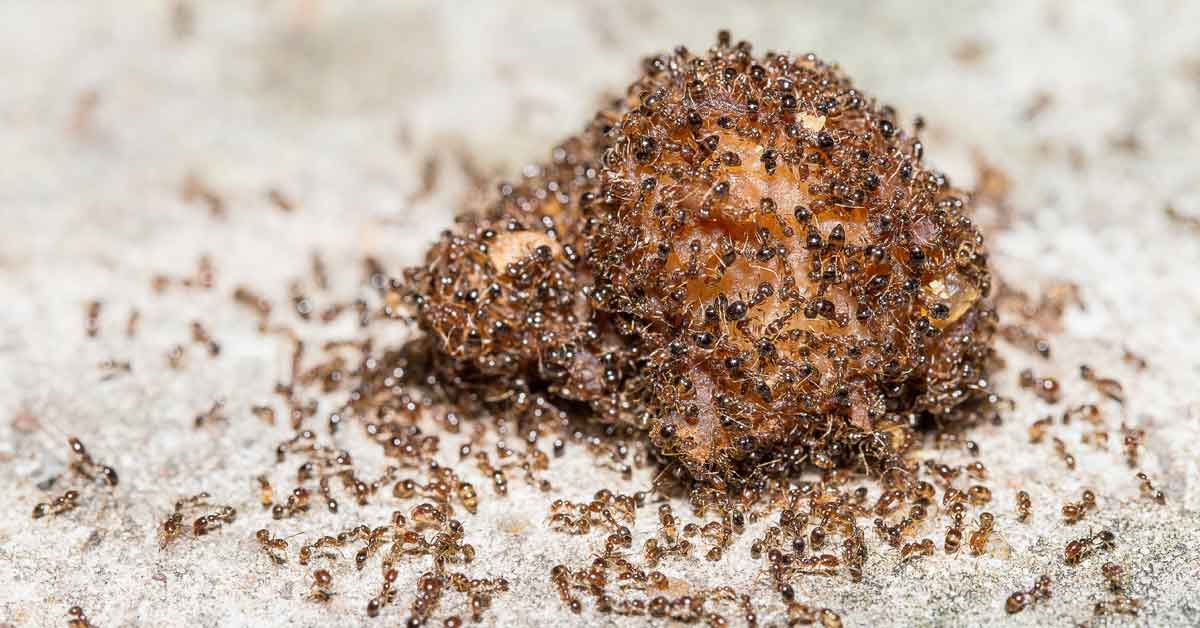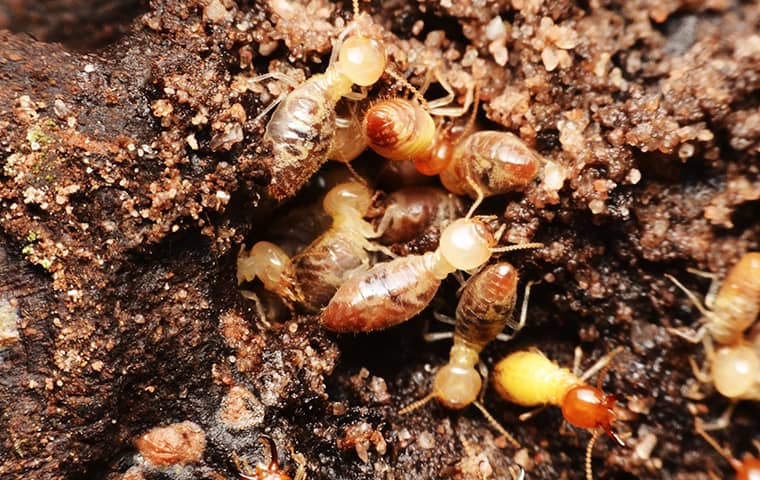Total Ant Control: Techniques and Services to Defeat Ant Problems
Ecological Influence of Pest Control: Harmonizing Performance With Sustainability
The ecological influence of insect control is a crucial concern that needs a fragile balance between attaining efficiency in making certain and managing parasites sustainability of our communities. From the usage of harmful chemicals that seep into our soil and water to the unexpected consequences on non-target types, the consequences of standard insect control methods are far-ranging.
Unsafe Chemicals in Bug Control
The application of damaging chemicals in pest control postures considerable environmental and wellness dangers that call for mindful factor to consider and reduction approaches. Pesticides, chemicals, and herbicides are frequently utilized to remove bugs, yet their prevalent application can bring about unplanned effects. These chemicals can pollute dirt, water resources, and the air, impacting not only the targeted pests but additionally beneficial insects, wild animals, and people.

To attend to these threats, integrated parasite monitoring (IPM) strategies are being advertised as a much more lasting alternative. IPM involves a combination of approaches such as organic control, environment manipulation, and the targeted use of chemicals as a last hotel (ant control davidson nc). By adopting a holistic method to pest control, we can reduce the environmental and health and wellness impacts linked with hazardous chemicals while effectively managing pest populaces
Effect On Non-Target Types
Considering the unplanned repercussions of pest control methods, the impact on non-target varieties is an essential element that requires thorough evaluation. While parasite control steps intend to target certain pests, various other organisms in the community may be inadvertently affected. Non-target species, including advantageous insects, birds, mammals, and also plants, can experience indirect or direct injury from pesticide applications or organic control methods.
Insecticides created to deal with a particular bug parasite might damage pollinators like or all-natural killers such as ladybugs. Organic control agents, if not species-specific, can pose risks to unintentional targets, interrupting the eco-friendly equilibrium.
To reduce the effect on non-target varieties, incorporated pest administration (IPM) methods that stress an all natural approach to pest control are recommended. These approaches focus on using eco friendly methods, decreasing injury to valuable microorganisms while effectively taking care of pest populaces. Performing thorough threat analyses and monitoring the end results of pest control initiatives are necessary action in protecting non-target types and promoting general ecological community health and wellness.
Soil and Water Contamination
Unintended environmental consequences of pest control techniques extend past affecting non-target varieties, with substantial implications for dirt and water contamination - termite control. Pesticides, herbicides, and chemical fertilizers utilized in insect control can leach into the dirt and infect groundwater, posturing a threat to both terrestrial and water environments.
Water his comment is here contamination is an additional vital concern associated with parasite control practices. To mitigate dirt and water contamination from parasite control activities, incorporated parasite administration strategies that focus on sustainability and lessen chemical inputs are critical.
Air Contamination From Chemical Use
Exposure to airborne pesticides during farming applications poses a significant issue for air pollution control measures. When pesticides are splashed onto crops, they can volatilize into the air and kind unstable organic substances (VOCs) and various other airborne pollutants. These chemicals can add to the development of ground-level ozone, a significant component of smog that can have damaging effects on human wellness, crop productivity, and general air top quality. In addition, pesticide drift, where pesticides are carried by the wind to unintentional locations, can lead to the contamination of neighboring ecological communities and water bodies.

Techniques for Sustainable Pest Control
In the world of agricultural practices, applying sustainable insect control methods is paramount for maintaining environmental equilibrium and protecting plant returns. Lasting parasite control emphasizes making use of ecologically pleasant approaches to manage pest populations efficiently while lessening injury to non-target microorganisms and ecosystems. Integrated Insect Administration (IPM) is an extensively taken on strategy that incorporates organic, social, physical, and chemical control approaches to achieve long-term pest management services.
One secret method in sustainable insect control is advertising biodiversity within agroecosystems. By enhancing all-natural adversaries of pests, such as parasitoids and killers, farmers can minimize the demand for artificial chemicals. Crop rotation and diversification are additionally reliable strategies to interfere with pest life process and create much less positive conditions for insects to thrive. Additionally, making use of pest-resistant plant selections and using methods like trap cropping can help in reducing parasite stress without relying greatly on chemical treatments. Eventually, by integrating these lasting bug control methods, farmers can accomplish a balance in between pest management effectiveness and ecological stewardship.
Final Thought
To conclude, the ecological impact of bug control methods need to be thoroughly taken into consideration to balance performance with sustainability. Dangerous chemicals used in insect control can bring about soil and water contamination, air pollution, and damage non-target varieties - termite control. It is crucial to carry out lasting pest control techniques to decrease these adverse impacts on the setting and advertise a healthier community for future generations
By embracing an all natural approach to pest control, we can reduce the environmental and health and wellness influences associated with damaging chemicals while properly managing pest populations.

To alleviate the air pollution triggered by chemical use, it is crucial to embrace incorporated insect monitoring techniques that focus on the use of non-chemical bug control approaches, such as crop turning, natural predators, and immune crop ranges. Lasting pest control stresses the use of ecologically pleasant methods to handle parasite populations successfully while minimizing injury to non-target organisms and ecological communities. Integrated Insect Administration (IPM) is an extensively adopted method that incorporates organic, social, physical, and chemical control techniques to attain long-term insect administration options.